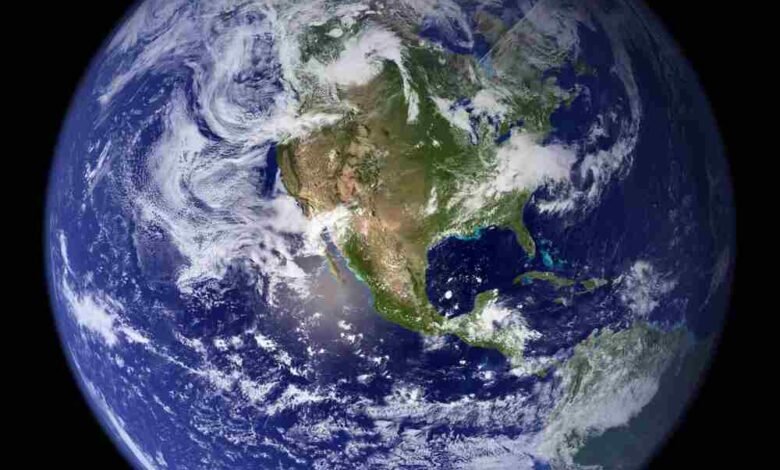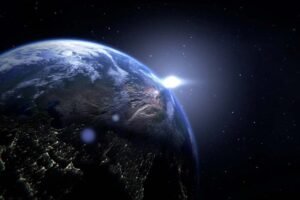How Old Is the Earth? A Simple Answer to a Big Question

How old is the Earth? This is a question that has puzzled people for centuries. The Earth is much older than we might think, and scientists have spent a lot of time studying how old our planet really is. Through different methods, such as studying rocks and using scientific tools, scientists have been able to figure out that the Earth is around 4.5 billion years old.
When we think about how long that is, it’s hard to imagine. For comparison, humans have only been around for a tiny part of Earth’s history. The planet has seen so many changes over these billions of years, from the time it was just a big ball of hot gas to the place where plants, animals, and humans live today. Understanding how old is the Earth helps us learn more about where we came from and how everything around us has changed over time.
How Old Is the Earth? Understanding the Earth’s Age
How old is the Earth? The Earth is around 4.5 billion years old. Scientists have worked hard to figure out the age of our planet by studying rocks, minerals, and even the moon! This number may seem very big, but it’s just the beginning of understanding how old our planet really is. Earth is much older than humans, and this long history has shaped everything we see today.
The age of the Earth helps us learn about its past and how life has developed over time. From when the planet was first formed from dust and gas to when it became a place full of life, knowing its age gives us a clue about our own history. By learning “how old is the Earth,” we can also better understand how other planets might have formed in our solar system.
How Do Scientists Know How Old the Earth Is?
Scientists use many different methods to figure out how old is the Earth. One way is by looking at the age of rocks. The oldest rocks found on Earth are about 4 billion years old. Scientists also study rocks from the moon, which are even older. Another way is through radiometric dating, which measures the amount of certain elements in rocks. By understanding how these elements change over time, scientists can calculate how old the rocks are.
- Radiometric dating: Using elements to measure age.
- Moon rocks: Studying rocks brought back from the moon.
- Oldest Earth rocks: Rocks that are billions of years old.
Why Does the Age of the Earth Matter?
Knowing how old the Earth is helps us understand many things. It tells us how long it took for life to form and how it changed over time. It also helps scientists learn about other planets. For example, the age of the Earth can tell us about the conditions that made life possible here. By studying Earth’s history, we can also prepare for future changes.
- Life on Earth: Learning when life first appeared.
- Changes over time: How Earth has evolved.
- Planet study: Comparing Earth’s age to other planets.
How Old Is the Earth Compared to Other Planets?
The Earth is not the oldest planet in the solar system. In fact, it’s much younger than Jupiter, which formed earlier. However, Earth is one of the only planets we know of that supports life. It has the right conditions for plants, animals, and humans to live. Understanding how old is the Earth compared to other planets helps us learn why Earth is unique.
Comparing Earth to Other Planets
- Jupiter: Older than Earth, formed earlier.
- Venus and Mars: Similar age, but no life.
- Earth’s uniqueness: Why Earth supports life.
What Happened on Earth 4.5 Billion Years Ago?
Around 4.5 billion years ago, the Earth was a hot, molten ball of rock. Over millions of years, it began to cool down, and the first solid crust formed. During this time, life had not yet begun, and the planet was very different from the Earth we know today. This period is known as the Hadean Eon. As time passed, the planet became cooler and the conditions right for life to begin.
- Molten Earth: The planet was hot and full of lava.
- Cooling down: Earth’s crust formed slowly over time.
- Beginning of life: The first signs of life appeared much later.
The Future of Earth: How Long Will It Last?
Understanding how old is the Earth also leads to questions about the future. How much longer will Earth be around? Scientists predict that in about 5 billion years, the Sun will burn out and the Earth will no longer be habitable. While that sounds like a long time, it’s important to study the future to understand how changes will affect us.
Predictions for Earth’s Future
- Sun’s life cycle: In 5 billion years, the Sun will change.
- Changes in the environment: How Earth’s future will look.
- Living on Earth: The planet may no longer support life in the future.
Conclusion:
Understanding how old is the Earth gives us a better view of our planet’s past and future. The Earth has a long and interesting history that helps scientists learn about life, change, and the future of our planet. By studying Earth’s age, we also learn about how other planets might have formed and how they compare to our world.
The Earth is 4.5 billion years old, and it continues to change. While the future might look different, our knowledge of Earth’s past helps us prepare for what’s ahead. Understanding the age of the Earth is key to understanding everything that has happened and will happen on our planet.
FAQs
Q: How do scientists know the Earth’s age?
A: Scientists use methods like radiometric dating and studying rocks from the moon to figure out the Earth’s age.
Q: Why is the Earth’s age important?
A: Knowing the Earth’s age helps us understand life on Earth, its history, and how it compares to other planets.
Q: How old is the Earth compared to other planets?
A: Earth is about 4.5 billion years old, which makes it younger than planets like Jupiter.





